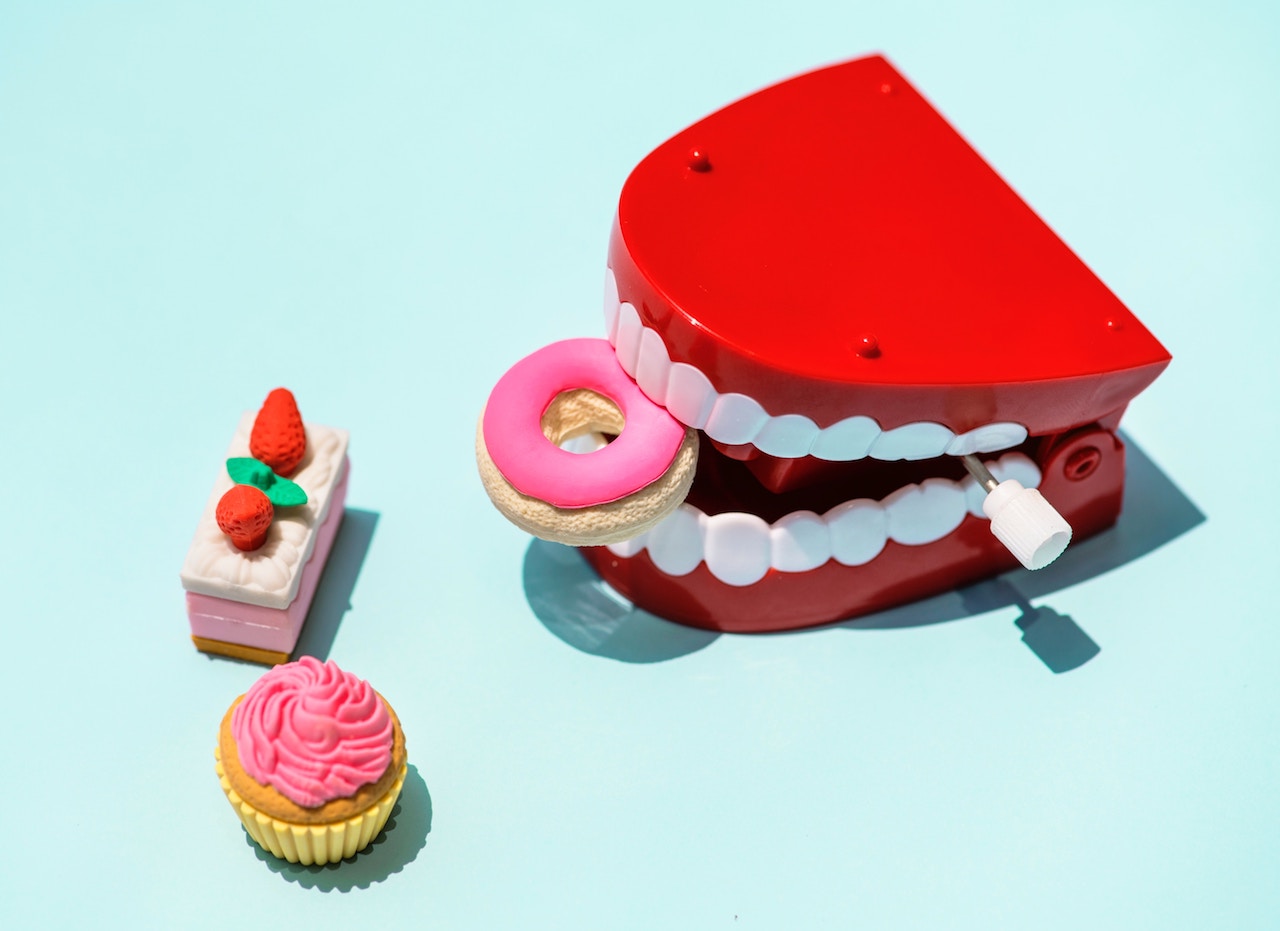
Gum recession is a dental condition that’s caused by the withdrawal of bone supporting gum tissue. This leads to irritation because it exposes the roots of the teeth.
The root is the lower 2/3 part of your tooth that’s not visible but it houses the blood and nerve supply of that region.
You won’t experience receding gums if your jaw bones are intact to hold everything in place.
So what causes receding gums? Look at some of them.
Causes Of Gum Recession
1. Overbrushing
Aggressive brushing. Rough brushing. Or overbrushing if you like. They’re all talking about the same thing. Your failing to develop an appropriate dental technique because you believe that pressure has something to do with a white smile.
Can you replace a toothpick with a needle to get little food particles off your tooth? You’d hurt yourself, right? That’s exactly what happens when you brush roughly. You injure your gums, causing bleeding gums and initiating gum recession in the process.
Aggressive flossing is also a factor.
2. Whitening Strips
And all other whitening formulas you’ve ever heard of. If you’re using them after consultations with your local dentist then that’s not a problem.
Problems usually arise when there’s an excessive use of these chemicals as they contain very corrosive ingredients that can destroy the gums.
3. Gum Disease
And a very common one is gingivitis, the inflammation of the gums. Gingivitis makes the gum swell, causing bad breath and degenerating into periodontitis if it’s not checked.
Gum recession is one of the symptoms too. And that’s because the inflammation in gum disease causes deterioration of the jaw bone.So check with the dentist if yours is a sign of a deeper infection.
4. Bruxism
So you had a rough day at work. Do you ease off by clenching and grinding your teeth at night? Maybe that’s what’s causing your receding gums. Grinding teeth weakens the structure of your jawbones.
5. Trauma
I’m sure you know what can happen to your canines if you’re constantly smacking them on every wall you find. They could get chipped or even fall off completely. So a traumatic injury to your teeth can cause receding gums.
6. Genetics
This post has been all about how your jaw bones support your teeth and why that strength is needed to prevent gum recession.
But what if it’s not all in your control. Every physical feature you’re endowed with has a thing or two to do with inheritance. The thickness or thinness of your jaw bones too.
Though very uncommon, genetic disorders like Marfan Syndrome and Parry Romberg Syndrome cause thinning and underdevelopment of the jaw bones.
And if your teeth are abnormally positioned, gum recession could set in also.
7. Poor Oral Hygiene
Think of every dental infection that could be caused by poor oral hygiene. I’m talking things like a dental abscess and periodontitis. These infections have gum recession as symptoms and that’s why poor hygiene is a factor you can’t ignore.
So you don’t confuse gum recession with any other dental infection, here are some signs you should look out for.
1. Longer Teeth
If you suspect anything, just compare the present length with maybe an old photo, or ask a roommate to check.
2. Exposed Root
Gum recession exposes the root section of your teeth, so you’d see different colors when you look in the mirror. The white or greyish look of your crown would be followed by a brown section underneath.
That’s the root that has been exposed.
3. Loosened Teeth
The jaw bones can no longer support the teeth so the teeth are severely weakened, even shaking at times.
4. Irritation
The exposed root exposes the blood vessels and nerves so you’d begin to feel sensitive to hot, cold and acidic foods. Pain signals are also transmitted.
5. Inflamed and Bleeding Gums
The margins of your gum would show patches of swelling that bleed when you brush or eat foods that need you to do a lot of chewing.
So how do you stop this?
5 Ways To Stop Receding Gums
1. Avoid Overbrushing
Pressure is not proportional to the brightness of your teeth. So focus on applying the right amount of pressure.
If that’s something too hard for you, get a toothbrush with a pressure sensor so you don’t injure your gums.
And you should consider getting a toothbrush with soft-bristles, it still gets the job done and is gentle on your teeth and gums.
Follow standard practice too. The ADA recommended brush-time is two minutes, don’t try to brush for five minutes. And you should brush twice daily also.
2. Adopt Proper Oral Hygiene Techniques
Flossing, rinsing, reducing sugary-food intake are practices that can prevent some of the consequences of poor oral hygiene.
3. Seek Help
If you’ve been involved in any traumatic attack to your teeth, see a dentist to examine the extent of damage. Check if you’d be needing any dental crowns or bridges if you have a chipped tooth.
And wear protective gear if you’re involved in contact sports or hunting.
If there’s any formula or whitening technique you want to try, consult with your dentist first so you don’t try something that’d erode your enamel.
4. Get A Mouth Guard
A mouth guard reduces the impact clenching and grinding have on your teeth so ask your dentist if this is something he’d recommend.
5. And All The Home Remedies
The anti-inflammatory properties of green tea check gum inflammation and strengthen the attachment of gums to the teeth.
Aloe Vera can reduce gum texture by restoring the right texture of gum tissue.
Coconut oil has antimicrobial agents that fight inflammation and reduce gum recession.
Lemon oil is antiseptic. It attacks the bacteria that act as causative agents to kick-start inflammation. It also has a pleasant smell that fights bad breath caused by bleeding gums.
A deficiency in vitamin C can cause bleeding gums so you should ensure you don’t have low vitamin C levels at any time.
Receding gums aren’t something you should take lightly. They’re dangerous on their own and could also appear as signs of other infections.
But now you know the signs to look out for, the causes and how you can stop this anomaly.
